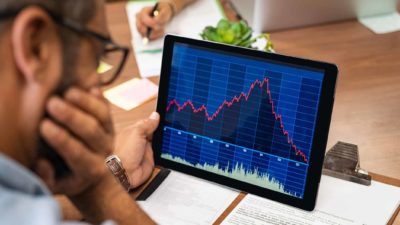Inflation is not an economic problem you hear much about these days.
If anything, the most we've heard over the past few years has come from the Reserve Bank of Australia (RBA) and its regular monthly musings that inflation is too low for comfort.
But this would barely register in importance for the average Australian, let alone the average investor on the street.
However, you only have to cast your mind (or memory if you're of a certain age) back to the 1980s to find a time when inflation was a real economic problem. It's because of inflation that those fabled 17% interest rates of the late '80s were necessary.
But today, it seems inflation might be a problem going forward for a different reason – the lack of it. Not just the lack, but negative inflation, also known as deflation.
See inflation at zero is a problem, but not a huge one. But deflation is a massive problem. We've only really seen it once before, and that was during the Great Depression almost a hundred years ago.
What is deflation?
Inflation is the slow depreciation of a currency's value over time. In essence, it's why a new car cost $800 a few decades ago but costs $20,000 today.
Deflation is the opposite – it's when a currency increases in value over time. This might sound like a good thing, but it's really not. See, if people start to believe their money will be worth more in the future and not less, they will stop spending it. Why buy a car this year for $20,000 when it could cost $16,000 next year? If this attitude becomes pervasive enough, it can compound and cause a recession (or prolong one). It's one of the reasons the Great Depression was so catastrophic.
Will deflation happen in 2020?
It's impossible to know, but it's still possible. We are right now experiencing exactly the kind of economic conditions that sow fertile ground for deflation. Since economic activity is being subdued due to the coronavirus right now, the businesses that are still open would still be likely experiencing a massive drop in sales and customers.
This situation typically leads to sales, price drops and other incentives to try and 'get people in the shop' – in other words, deflationary activity.
This is being compounded by macroeconomic factors as well. Commodity prices are falling across the board – just this week we saw negative oil prices for the first time in history. If production input costs drop because of lower commodity prices, businesses can pass these on in the form of lower prices. That feeds the deflation spiral.
Of course, this might not happen, but it's still possible.
How to beat deflation if it does happen? Investing in quality ASX shares is a great start!








